30 dec 2016
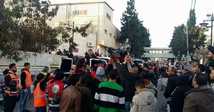
Israeli Occupation Forces (IOF) have returned the bodies of two Palestinians, who were recently shot and killed by IOF soldiers after allegedly carrying out stabbing attacks, to their families on Friday.
According to Quds Press, Abu Qaraa and al-Sheikh families had been waiting long hours to receive their sons’ bodies at Ofer military checkpoint east of Ramallah.
However, the IOF changed the handover place.
The Palestinian Red Crescent Society said in a brief statement that the two killed youths’ bodies were delivered at el-Jeb checkpoint and were then transferred to Palestine Medical Complex in Ramallah.
Mu'en Abu Qaraa, 23, was killed by Israeli forces last November near the entrance of the illegal Israeli Ofra settlement after he allegedly attempted to carry out a stabbing attack.
Hammad Al-Sheikh, 21, was killed by Israeli policemen after carrying out a stabbing attack in the Old City of occupied Jerusalem on Dec. 14, injuring two Israeli soldiers.
Nine slain Palestinians’ bodies are still held in Israeli morgues.
Since the outbreak of Jerusalem Intifada in October 2015, Israel decided not to return the bodies of slain Palestinians, shot dead by Israeli forces for alleged involvement in attacks on Israeli soldiers or settlers, to their families as part of its collective punishment policy.
Israeli authorities release the bodies of 2 slain Palestinians
Israeli authorities Friday released the bodies of two slain Palestinians from the occupied West Bank who were shot to death by Israeli forces after the two committed and allegedly attempted to commit stabbing attacks against Israeli soldiers.
The bodies of Maen Nasser al-Din Abu Qaraa, 23, from the village of al-Mazraa al-Qibliyaa in the Ramallah district, and Hamad Khader al-Sheikh, 21, from the village of Beit Surik in the district of Jerusalem, were held by the Israeli state for 57 and 17 days, respectively.
Israeli forces delivered the bodies at the al-Jib checkpoint northwest of Jerusalem after originally informing the families that they would deliver the bodies near Israel’s Ofer detention center in western Ramallah and at the Rafat checkpoint in northern Jerusalem.
Palestinian ambulances transferred the slain bodies to the Ramallah Governmental Hospital to conduct medicals tests in order for Palestinian doctors to document their cases, which could be used in a potential appeal to the International Court of Justice (ICJ) against Israel for possible war crimes.
The Palestinian prosecution released a statement after the release of the bodies pointing out that the prosecution’s deputy Samer al-Masri and a number of Palestinian doctors had conducted medical tests to investigate the circumstances of Abu Qaraa and al-Sheikh’s deaths to document crimes committed against them by Israeli forces.
Head of the prosecution Alaa al-Tamimi added that the prosecution has opened up investigations around the deaths of all the Palestinian bodies returned by the Israeli state, including those who have died inside Israeli prisons.
Abu Qaraa was killed by Israeli forces on Nov. 3 near the entrance of the illegal Israeli Ofra settlement after he allegedly attempted to carry out a stabbing attack.
An Israeli army spokesperson told Ma'an at the time that a Palestinian "armed with a knife attempted to stab an Israeli soldier guarding a bus stop" near Ofra, and that she was not aware of any Israelis being injured in the case.
Israeli forces reportedly prevented Palestinian medics from approaching the scene, eyewitnesses said, adding that Israeli medical teams did not treat him, leaving him to bleed to death.
Meanwhile, Al-Sheikh was killed after carrying out a stabbing attack in the Old City of occupied East Jerusalem on Dec. 14, injuring one Israeli soldier.
Israeli police spokeswoman Luba al-Samri said at the time that a suspect approached a group of Israeli police forces deployed near the Austrian Hospice hospital in the Old City, took out a screwdriver and stabbed one of the officers in the head, lightly injuring him.
Witnesses at the time said al-Sheikh was left on the ground bleeding for 20 minutes, adding that a Palestinian doctor arrived on the scene but was pushed away by Israeli forces before they finally let him administer first aid to the wounded Palestinian until Israeli ambulances arrived at the scene.
The release of the bodies of Qaraa and al-Sheikh was the latest round of returns of Palestinian bodies by Israeli authorities, with nine Palestinian bodies being released last week and seven released the week prior.
A joint statement released by prisoners rights group Addameer and Israeli minority rights group Adalah in March condemned Israel’s practice of withholding bodies as "a severe violation of international humanitarian law as well as international human rights law, including violations of the right to dignity, freedom of religion, and the right to practice culture."
The statement said it appeared "many" of the Palestinians whose bodies Israel was holding had been "extrajudicially executed by Israeli forces during alleged attacks against Israelis, despite posing no danger."
Israeli authorities dramatically escalated a policy of withholding Palestinian bodies killed by Israeli forces amid unrest that erupted across the occupied Palestinian territory and Israel in October last year, having repeatedly claimed that funerals of Palestinians had provided grounds for “incitement” against the Israeli state.
However, following an uproar of protest among Palestinians over the policy, Israeli authorities began scaling down the practice, although Israeli authorities have continued to hold nine Palestinian bodies for between eight and three months.
The nine slain Palestinians still being held by the Israeli state include:
Abd al-Hamid Abu Srour from Aida refugee camp in Bethlehem, who died while carrying out a bomb attack on a bus in Jerusalem on April 18, which left 21 injured. The Israeli Supreme Court had rejected a request filed by the Israeli prosecution to delay making a decision over whether to release Abu Srour’s body. The Israeli government had already agreed back in June to release Abu Srour’s body to his family to be buried.
Majd al-Khadour, 18, from the village of Bani Naim in Hebron, was shot to death by Israeli forces on June 24 after allegedly carrying out a car-ramming attack that lightly injured two Israelis.
Muhammad Tarayra, 17, also from Bani Naim, was killed after carrying out a stabbing attack in the illegal Israeli settlement of Kiryat Arba in Hebron that killed a 13-year-old Israeli girl, Hallel Yafa Ariel. Israeli daily Haaretz reported earlier in the month that Tarayra was among the Palestinians considered “terrorists affiliated with the Hamas group in Gaza,” and Israeli authorities had appealed to the Israeli Supreme Court for more time to decide on whether or not to return him.
Muhammad al-Faqih, from the village of Dura in Hebron, was killed by Israeli forces after fortifying himself in a house in Hebron’s Surif village several weeks after allegedly carrying out a shooting attack on a settler family’s vehicle, killing the father, and leaving the wife and two children injured. At the time of his death, Israeli forces fired anti-tank missiles at the house and demolished it before al-Faqih was killed. Like Tarayra, al-Faqih was also among the Palestinians considered “terrorists” affiliated with Hamas by Israeli authorities.
Rami Muhammad Zaim Awartani, 31, from the village of Awarta in Nablus, was killed by Israeli forces after attempting to carry out a stabbing attack on Israeli soldiers stationed at the Huwwara checkpoint on July 31.
Muhammad al-Rajabi,15, from Hebron city, killed on Sept. 16, was shot to death by Israeli soldiers after stabbing and lightly injuring an Israeli soldier near the Tel Rumeida area of Hebron’s Old City.
Hatim Shaludi, 25, also from Hebron city, was also shot dead in the Tel Rumeida area on Sept. 17 after an alleged attempted stabbing attack, less than 24 hours after the killing of al-Rajabi.
Misbah Abu Sbeih, 39, from the neighborhood of Silwan in occupied East Jerusalem, was shot and killed by Israeli police on Oct. 9 after carrying out a drive-by shooting in the East Jerusalem neighborhood of Sheikh Jarrah, which left an Israeli police officer and Israeli woman dead, and at least five others injured.
Muhammad Salam (also reported as Muhammad Nabil Zeidan), 15, from the Shufat refugee camp in the Jerusalem district of the West Bank, was killed by an Israeli security guard on Nov. 25 near the camp after allegedly attempting to carry out a stabbing attack on a group of Israeli security officers.
According to Quds Press, Abu Qaraa and al-Sheikh families had been waiting long hours to receive their sons’ bodies at Ofer military checkpoint east of Ramallah.
However, the IOF changed the handover place.
The Palestinian Red Crescent Society said in a brief statement that the two killed youths’ bodies were delivered at el-Jeb checkpoint and were then transferred to Palestine Medical Complex in Ramallah.
Mu'en Abu Qaraa, 23, was killed by Israeli forces last November near the entrance of the illegal Israeli Ofra settlement after he allegedly attempted to carry out a stabbing attack.
Hammad Al-Sheikh, 21, was killed by Israeli policemen after carrying out a stabbing attack in the Old City of occupied Jerusalem on Dec. 14, injuring two Israeli soldiers.
Nine slain Palestinians’ bodies are still held in Israeli morgues.
Since the outbreak of Jerusalem Intifada in October 2015, Israel decided not to return the bodies of slain Palestinians, shot dead by Israeli forces for alleged involvement in attacks on Israeli soldiers or settlers, to their families as part of its collective punishment policy.
Israeli authorities release the bodies of 2 slain Palestinians
Israeli authorities Friday released the bodies of two slain Palestinians from the occupied West Bank who were shot to death by Israeli forces after the two committed and allegedly attempted to commit stabbing attacks against Israeli soldiers.
The bodies of Maen Nasser al-Din Abu Qaraa, 23, from the village of al-Mazraa al-Qibliyaa in the Ramallah district, and Hamad Khader al-Sheikh, 21, from the village of Beit Surik in the district of Jerusalem, were held by the Israeli state for 57 and 17 days, respectively.
Israeli forces delivered the bodies at the al-Jib checkpoint northwest of Jerusalem after originally informing the families that they would deliver the bodies near Israel’s Ofer detention center in western Ramallah and at the Rafat checkpoint in northern Jerusalem.
Palestinian ambulances transferred the slain bodies to the Ramallah Governmental Hospital to conduct medicals tests in order for Palestinian doctors to document their cases, which could be used in a potential appeal to the International Court of Justice (ICJ) against Israel for possible war crimes.
The Palestinian prosecution released a statement after the release of the bodies pointing out that the prosecution’s deputy Samer al-Masri and a number of Palestinian doctors had conducted medical tests to investigate the circumstances of Abu Qaraa and al-Sheikh’s deaths to document crimes committed against them by Israeli forces.
Head of the prosecution Alaa al-Tamimi added that the prosecution has opened up investigations around the deaths of all the Palestinian bodies returned by the Israeli state, including those who have died inside Israeli prisons.
Abu Qaraa was killed by Israeli forces on Nov. 3 near the entrance of the illegal Israeli Ofra settlement after he allegedly attempted to carry out a stabbing attack.
An Israeli army spokesperson told Ma'an at the time that a Palestinian "armed with a knife attempted to stab an Israeli soldier guarding a bus stop" near Ofra, and that she was not aware of any Israelis being injured in the case.
Israeli forces reportedly prevented Palestinian medics from approaching the scene, eyewitnesses said, adding that Israeli medical teams did not treat him, leaving him to bleed to death.
Meanwhile, Al-Sheikh was killed after carrying out a stabbing attack in the Old City of occupied East Jerusalem on Dec. 14, injuring one Israeli soldier.
Israeli police spokeswoman Luba al-Samri said at the time that a suspect approached a group of Israeli police forces deployed near the Austrian Hospice hospital in the Old City, took out a screwdriver and stabbed one of the officers in the head, lightly injuring him.
Witnesses at the time said al-Sheikh was left on the ground bleeding for 20 minutes, adding that a Palestinian doctor arrived on the scene but was pushed away by Israeli forces before they finally let him administer first aid to the wounded Palestinian until Israeli ambulances arrived at the scene.
The release of the bodies of Qaraa and al-Sheikh was the latest round of returns of Palestinian bodies by Israeli authorities, with nine Palestinian bodies being released last week and seven released the week prior.
A joint statement released by prisoners rights group Addameer and Israeli minority rights group Adalah in March condemned Israel’s practice of withholding bodies as "a severe violation of international humanitarian law as well as international human rights law, including violations of the right to dignity, freedom of religion, and the right to practice culture."
The statement said it appeared "many" of the Palestinians whose bodies Israel was holding had been "extrajudicially executed by Israeli forces during alleged attacks against Israelis, despite posing no danger."
Israeli authorities dramatically escalated a policy of withholding Palestinian bodies killed by Israeli forces amid unrest that erupted across the occupied Palestinian territory and Israel in October last year, having repeatedly claimed that funerals of Palestinians had provided grounds for “incitement” against the Israeli state.
However, following an uproar of protest among Palestinians over the policy, Israeli authorities began scaling down the practice, although Israeli authorities have continued to hold nine Palestinian bodies for between eight and three months.
The nine slain Palestinians still being held by the Israeli state include:
Abd al-Hamid Abu Srour from Aida refugee camp in Bethlehem, who died while carrying out a bomb attack on a bus in Jerusalem on April 18, which left 21 injured. The Israeli Supreme Court had rejected a request filed by the Israeli prosecution to delay making a decision over whether to release Abu Srour’s body. The Israeli government had already agreed back in June to release Abu Srour’s body to his family to be buried.
Majd al-Khadour, 18, from the village of Bani Naim in Hebron, was shot to death by Israeli forces on June 24 after allegedly carrying out a car-ramming attack that lightly injured two Israelis.
Muhammad Tarayra, 17, also from Bani Naim, was killed after carrying out a stabbing attack in the illegal Israeli settlement of Kiryat Arba in Hebron that killed a 13-year-old Israeli girl, Hallel Yafa Ariel. Israeli daily Haaretz reported earlier in the month that Tarayra was among the Palestinians considered “terrorists affiliated with the Hamas group in Gaza,” and Israeli authorities had appealed to the Israeli Supreme Court for more time to decide on whether or not to return him.
Muhammad al-Faqih, from the village of Dura in Hebron, was killed by Israeli forces after fortifying himself in a house in Hebron’s Surif village several weeks after allegedly carrying out a shooting attack on a settler family’s vehicle, killing the father, and leaving the wife and two children injured. At the time of his death, Israeli forces fired anti-tank missiles at the house and demolished it before al-Faqih was killed. Like Tarayra, al-Faqih was also among the Palestinians considered “terrorists” affiliated with Hamas by Israeli authorities.
Rami Muhammad Zaim Awartani, 31, from the village of Awarta in Nablus, was killed by Israeli forces after attempting to carry out a stabbing attack on Israeli soldiers stationed at the Huwwara checkpoint on July 31.
Muhammad al-Rajabi,15, from Hebron city, killed on Sept. 16, was shot to death by Israeli soldiers after stabbing and lightly injuring an Israeli soldier near the Tel Rumeida area of Hebron’s Old City.
Hatim Shaludi, 25, also from Hebron city, was also shot dead in the Tel Rumeida area on Sept. 17 after an alleged attempted stabbing attack, less than 24 hours after the killing of al-Rajabi.
Misbah Abu Sbeih, 39, from the neighborhood of Silwan in occupied East Jerusalem, was shot and killed by Israeli police on Oct. 9 after carrying out a drive-by shooting in the East Jerusalem neighborhood of Sheikh Jarrah, which left an Israeli police officer and Israeli woman dead, and at least five others injured.
Muhammad Salam (also reported as Muhammad Nabil Zeidan), 15, from the Shufat refugee camp in the Jerusalem district of the West Bank, was killed by an Israeli security guard on Nov. 25 near the camp after allegedly attempting to carry out a stabbing attack on a group of Israeli security officers.
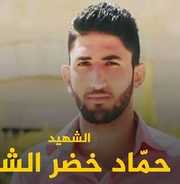
Hamad Khader al-Sheikh 21
Israeli authorities have decided to return the bodies of two slain Palestinians who were shot and killed by Israeli forces over the past two months, after committing and allegedly attempting to commit stabbing attacks against Israeli soldiers, according to the victims’ families.
The family of Maen Nasser al-Din Abu Qaraa, 23, told Ma’an that Israeli forces notified them that they would be returning their son’s body to the family in their village of al-Mazraa al-Qibliyaa in the central occupied West Bank Ramallah district.
Abu Qaraa was killed by Israeli forces on Nov. 3 near the entrance of the illegal Israeli Ofra settlement after he allegedly attempted to carry out a stabbing attack.
An Israeli army spokesperson told Ma'an at the time that a Palestinian "armed with a knife attempted to stab an Israeli soldier guarding a bus stop" near Ofra, and that she was not aware of any Israelis being injured in the case.
Israeli forces reportedly prevented Palestinian medics from approaching the scene, eyewitnesses said, adding that Israeli medical teams did not treat him, leaving him to bleed to death.
Israeli intelligence authorities told Abu Qaraa’s family that they would inform the family of the details of the body’s release by phone call Friday morning.
Israeli intelligence authorities also informed the family of slain Palestinian Hamad Khader al-Sheikh, 21, that his body would be returned to the family’s village of Beit Surik in the occupied West Bank district of Jerusalem.
Al-Sheikh was killed after carrying out a stabbing attack in the Old City of occupied East Jerusalem on Dec. 14, injuring one Israeli soldier.
Israeli police spokeswoman Luba al-Samri said at the time that a suspect approached a group of Israeli police forces deployed near the Austrian Hospice hospital in the Old City, took out a screwdriver and stabbed one of the officers in the head, lightly injuring him.
Witnesses at the time said al-Sheikh was left on the ground bleeding for 20 minutes, adding that a Palestinian doctor arrived on the scene but was pushed away by Israeli forces before they finally let him administer first aid to the wounded Palestinian until Israeli ambulances arrived at the scene.
Al-Sheikh’s family was also told by Israeli authorities that they would be notified by phone call Friday morning of the details of the body’s release.
Israeli authorities dramatically escalated a policy of withholding Palestinian bodies killed by Israeli forces following the emergence of a wave of unrest across the occupied Palestinian territory and Israel in October 2015, having repeatedly claimed that funerals of Palestinians had provided grounds for “incitement” against the Israeli state.
However, following an uproar of protest among Palestinians over the policy, Israeli authorities began scaling down the practice, although a number of bodies still remain withheld.
When Israeli authorities have decided to return slain bodies and allow funerals in the occupied Palestinian territory, the ceremonies have been typically restricted by a long list of conditions imposed by Israeli authorities, including limiting the number of attendees and the deployment of Israeli soldiers throughout the event.
Palestinian families have also been forced to pay large financial deposits to the Israeli government as a collateral for potential “incitement” during the funerals and to ensure that families abide by Israeli-imposed conditions.
After Israeli decided to release the bodies of nine Palestinians last week to their families in the occupied West Bank, mourners at the funeral for Khalid Ikhlayyil in the Beit Ummar were met with live ammunition, tear gas, and rubber-coated steel bullets fired by Israeli forces.
Meanwhile, Israeli police announced in June that slain Palestinians from occupied East Jerusalem suspected of “terrorism” would no longer be able to have funerals in their neighborhoods or villages, but would instead be buried in cemeteries chosen by the Israeli police.
A joint statement released by Addameer and Israeli minority rights group Adalah in March condemned Israel’s practice of withholding bodies as "a severe violation of international humanitarian law as well as international human rights law, including violations of the right to dignity, freedom of religion, and the right to practice culture."
The statement said it appeared "many" of the Palestinians whose bodies Israel was holding had been "extrajudicially executed by Israeli forces during alleged attacks against Israelis, despite posing no danger."
Israeli authorities have decided to return the bodies of two slain Palestinians who were shot and killed by Israeli forces over the past two months, after committing and allegedly attempting to commit stabbing attacks against Israeli soldiers, according to the victims’ families.
The family of Maen Nasser al-Din Abu Qaraa, 23, told Ma’an that Israeli forces notified them that they would be returning their son’s body to the family in their village of al-Mazraa al-Qibliyaa in the central occupied West Bank Ramallah district.
Abu Qaraa was killed by Israeli forces on Nov. 3 near the entrance of the illegal Israeli Ofra settlement after he allegedly attempted to carry out a stabbing attack.
An Israeli army spokesperson told Ma'an at the time that a Palestinian "armed with a knife attempted to stab an Israeli soldier guarding a bus stop" near Ofra, and that she was not aware of any Israelis being injured in the case.
Israeli forces reportedly prevented Palestinian medics from approaching the scene, eyewitnesses said, adding that Israeli medical teams did not treat him, leaving him to bleed to death.
Israeli intelligence authorities told Abu Qaraa’s family that they would inform the family of the details of the body’s release by phone call Friday morning.
Israeli intelligence authorities also informed the family of slain Palestinian Hamad Khader al-Sheikh, 21, that his body would be returned to the family’s village of Beit Surik in the occupied West Bank district of Jerusalem.
Al-Sheikh was killed after carrying out a stabbing attack in the Old City of occupied East Jerusalem on Dec. 14, injuring one Israeli soldier.
Israeli police spokeswoman Luba al-Samri said at the time that a suspect approached a group of Israeli police forces deployed near the Austrian Hospice hospital in the Old City, took out a screwdriver and stabbed one of the officers in the head, lightly injuring him.
Witnesses at the time said al-Sheikh was left on the ground bleeding for 20 minutes, adding that a Palestinian doctor arrived on the scene but was pushed away by Israeli forces before they finally let him administer first aid to the wounded Palestinian until Israeli ambulances arrived at the scene.
Al-Sheikh’s family was also told by Israeli authorities that they would be notified by phone call Friday morning of the details of the body’s release.
Israeli authorities dramatically escalated a policy of withholding Palestinian bodies killed by Israeli forces following the emergence of a wave of unrest across the occupied Palestinian territory and Israel in October 2015, having repeatedly claimed that funerals of Palestinians had provided grounds for “incitement” against the Israeli state.
However, following an uproar of protest among Palestinians over the policy, Israeli authorities began scaling down the practice, although a number of bodies still remain withheld.
When Israeli authorities have decided to return slain bodies and allow funerals in the occupied Palestinian territory, the ceremonies have been typically restricted by a long list of conditions imposed by Israeli authorities, including limiting the number of attendees and the deployment of Israeli soldiers throughout the event.
Palestinian families have also been forced to pay large financial deposits to the Israeli government as a collateral for potential “incitement” during the funerals and to ensure that families abide by Israeli-imposed conditions.
After Israeli decided to release the bodies of nine Palestinians last week to their families in the occupied West Bank, mourners at the funeral for Khalid Ikhlayyil in the Beit Ummar were met with live ammunition, tear gas, and rubber-coated steel bullets fired by Israeli forces.
Meanwhile, Israeli police announced in June that slain Palestinians from occupied East Jerusalem suspected of “terrorism” would no longer be able to have funerals in their neighborhoods or villages, but would instead be buried in cemeteries chosen by the Israeli police.
A joint statement released by Addameer and Israeli minority rights group Adalah in March condemned Israel’s practice of withholding bodies as "a severe violation of international humanitarian law as well as international human rights law, including violations of the right to dignity, freedom of religion, and the right to practice culture."
The statement said it appeared "many" of the Palestinians whose bodies Israel was holding had been "extrajudicially executed by Israeli forces during alleged attacks against Israelis, despite posing no danger."
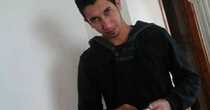
Maen Nasser al-Din Abu Qaraa 23
The Israeli occupation authorities (IOA) announced their intent to hand over the body of the slain Palestinian youth Ma’n Nasr al-Deen Abu Kara’ to his family on Friday.
Abu Kara’s family is expected to receive the body in al-Mazr’a al-Gharbiya village, to the north of Ramallah province.
23-year-old Abu Kara’ was fatally shot by the Israeli occupation army on November 3, 2016 near the access road to the illegal Israeli settlement of Ofra, to the east of Ramallah, on allegations of attempting to stab Israeli occupation soldiers.
The Israeli intelligence pledged to update, at 9 a.m. on Friday, the casualty’s family on the exact place and time when to hand over the body.
The Israeli occupation authorities (IOA) announced their intent to hand over the body of the slain Palestinian youth Ma’n Nasr al-Deen Abu Kara’ to his family on Friday.
Abu Kara’s family is expected to receive the body in al-Mazr’a al-Gharbiya village, to the north of Ramallah province.
23-year-old Abu Kara’ was fatally shot by the Israeli occupation army on November 3, 2016 near the access road to the illegal Israeli settlement of Ofra, to the east of Ramallah, on allegations of attempting to stab Israeli occupation soldiers.
The Israeli intelligence pledged to update, at 9 a.m. on Friday, the casualty’s family on the exact place and time when to hand over the body.
29 dec 2016
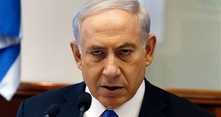
Members of the Palestinian Legislative Council (PLC) have participated in a protest march in Ramallah, calling for the return of the bodies of 11 Palestinians recently killed by Israeli gunfire.
Relatives of the slain Palestinians and national figures also participated in the event denouncing Israel’s refusal to hand over their sons’ bodies.
The protesters carried banners and photos of 11 Palestinians, whose bodies are being held by Israeli occupation authorities, demanding immediate and unconditional handover of their corpses.
Since the outbreak of Jerusalem Intifada in October 2015, Israel decided not to return the bodies of slain Palestinians, shot dead by Israeli forces for alleged involvement in attacks on Israeli soldiers or settlers, to their families as part of its collective punishment policy.
Relatives of the slain Palestinians and national figures also participated in the event denouncing Israel’s refusal to hand over their sons’ bodies.
The protesters carried banners and photos of 11 Palestinians, whose bodies are being held by Israeli occupation authorities, demanding immediate and unconditional handover of their corpses.
Since the outbreak of Jerusalem Intifada in October 2015, Israel decided not to return the bodies of slain Palestinians, shot dead by Israeli forces for alleged involvement in attacks on Israeli soldiers or settlers, to their families as part of its collective punishment policy.
24 dec 2016
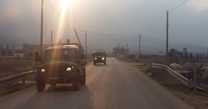
34 Palestinians choked on teargas in the violent clashes that broke out with Israeli occupation forces (IOF) on Saturday afternoon at the entrances of Aroub refugee camp and Beit Ummar town in al-Khalil to the south of the West Bank.
According to the PIC reporter, four Israeli soldiers were slightly to moderately wounded in the clashes as they were thrown with stones, empty bottles, and Molotov cocktails.
Palestinian medical sources said that 34 Palestinian citizens were treated for breathing problems and gunshot wounds following the clashes that erupted after the funeral of Mustafa Baradeiah and Ahmed Khlail whose bodies were held by the Israeli occupation for months before they were released on Friday.
The non-governmental Palestinian Red Crescent association said that its crews dealt with 20 cases of teargas suffocation, 10 injuries with rubber-coated metal bullets, and 1 injury with live bullet in Beit Ummar in addition to 3 cases of teargas suffocation in Aroub camp.
The spokesman of the Popular Committee against the Settlement in Beit Ummar Mohammed Awad told the Quds Press news agency that the Israeli soldiers initiated the attack on Khlail's funeral with teargas canisters and rubber and live bullets.
Other limited clashes broke out in Aroub camp between the Palestinian youths and the Israeli soldiers after the latter fired teargas canisters during the funeral of Baradeiah.
Meanwhile, confrontations between the Palestinian youths and the Israeli soldiers were witnessed in Beit Dajan village to the east of Nablus city following the incursion of several Israeli patrols into the village.
Eyewitnesses said that the Israeli forces erected a checkpoint at the entrance of the village and hindered the movement of Palestinian vehicles.
Beit Dajan village has been recently exposed to intense Israeli raids.
According to the PIC reporter, four Israeli soldiers were slightly to moderately wounded in the clashes as they were thrown with stones, empty bottles, and Molotov cocktails.
Palestinian medical sources said that 34 Palestinian citizens were treated for breathing problems and gunshot wounds following the clashes that erupted after the funeral of Mustafa Baradeiah and Ahmed Khlail whose bodies were held by the Israeli occupation for months before they were released on Friday.
The non-governmental Palestinian Red Crescent association said that its crews dealt with 20 cases of teargas suffocation, 10 injuries with rubber-coated metal bullets, and 1 injury with live bullet in Beit Ummar in addition to 3 cases of teargas suffocation in Aroub camp.
The spokesman of the Popular Committee against the Settlement in Beit Ummar Mohammed Awad told the Quds Press news agency that the Israeli soldiers initiated the attack on Khlail's funeral with teargas canisters and rubber and live bullets.
Other limited clashes broke out in Aroub camp between the Palestinian youths and the Israeli soldiers after the latter fired teargas canisters during the funeral of Baradeiah.
Meanwhile, confrontations between the Palestinian youths and the Israeli soldiers were witnessed in Beit Dajan village to the east of Nablus city following the incursion of several Israeli patrols into the village.
Eyewitnesses said that the Israeli forces erected a checkpoint at the entrance of the village and hindered the movement of Palestinian vehicles.
Beit Dajan village has been recently exposed to intense Israeli raids.
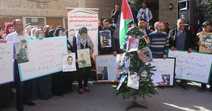
After long months in morgues, the Israeli occupation authorities on Friday evening released the bodies of nine martyrs from different West Bank areas and handed them over to the Palestinian side.
The martyrs, whose bodies were released yesterday, are Issa al-Tarayra, Muhanad al-Rajabi, Amir al-Rajabi, Mustafa Barad’iya, Khaled Akhlil, Mohamed Turkman, Mohamed Maskawi, Wael Abu Saleh, and Jihad al-Qaddumi.
Their bodies were handed over to the Palestinian liaison authorities in al-Khalil, Qalqiliya, Tulkarem, Nablus and Jenin before transferring them by ambulances to local hospitals.
Funerals for the martyrs are expected to be held by their families in their native areas on Saturday.
The martyrs, whose bodies were released yesterday, are Issa al-Tarayra, Muhanad al-Rajabi, Amir al-Rajabi, Mustafa Barad’iya, Khaled Akhlil, Mohamed Turkman, Mohamed Maskawi, Wael Abu Saleh, and Jihad al-Qaddumi.
Their bodies were handed over to the Palestinian liaison authorities in al-Khalil, Qalqiliya, Tulkarem, Nablus and Jenin before transferring them by ambulances to local hospitals.
Funerals for the martyrs are expected to be held by their families in their native areas on Saturday.
23 dec 2016
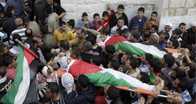
Israeli occupation authorities decided to return the bodies of 11 Palestinians from the West Bank killed by the Israeli army earlier this year, the Palestinian National Committee for Retrieving Bodies of Martyrs revealed.
Coordinator for the committee Amin Bayad told Quds Press that the committee was informed that the bodies of 11 slain Palestinians will be handed over to their families on Friday, including seven from al-Khalil.
According to Palestinian figures, Israeli authorities continue to hold the bodies of 20 Palestinians.
Earlier last week, the IOA handed over to the Palestinian Red Crescent the bodies of seven Palestinians killed by Israeli gunfire.
Last year, the Israeli government approved measures that allowed army forces to hold the bodies of Palestinians killed during alleged attacks, arguing that their funerals serve to “glorify violence.”
A joint statement released by Addameer and Israeli minority rights group Adalah in March condemned Israel’s practice of withholding bodies as "a severe violation of international humanitarian law as well as international human rights law, including violations of the right to dignity, freedom of religion, and the right to practice culture."
The statement said it appeared "many" of the Palestinians whose bodies Israel was holding had been "extrajudicially executed by Israeli forces during alleged attacks against Israelis, despite posing no danger."
Coordinator for the committee Amin Bayad told Quds Press that the committee was informed that the bodies of 11 slain Palestinians will be handed over to their families on Friday, including seven from al-Khalil.
According to Palestinian figures, Israeli authorities continue to hold the bodies of 20 Palestinians.
Earlier last week, the IOA handed over to the Palestinian Red Crescent the bodies of seven Palestinians killed by Israeli gunfire.
Last year, the Israeli government approved measures that allowed army forces to hold the bodies of Palestinians killed during alleged attacks, arguing that their funerals serve to “glorify violence.”
A joint statement released by Addameer and Israeli minority rights group Adalah in March condemned Israel’s practice of withholding bodies as "a severe violation of international humanitarian law as well as international human rights law, including violations of the right to dignity, freedom of religion, and the right to practice culture."
The statement said it appeared "many" of the Palestinians whose bodies Israel was holding had been "extrajudicially executed by Israeli forces during alleged attacks against Israelis, despite posing no danger."
20 dec 2016
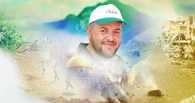
Israeli occupation authorities (IOA) gave the family of Misbah Abu Sbeih, who was killed by Israeli forces in October following an alleged shooting attack in occupied Jerusalem, 48 hours to evacuate their house before being demolished.
The family has earlier appealed against an Israeli court’s order to demolish Abu Sbeih’s house in occupied Jerusalem.
However, the court rejected on Monday the family’s appeal and gave them 48 hours to evacuate the house before its demolition under the pretext of “deterring attacks carried out by Palestinians”
Following the alleged shooting attack, the IOA closed Abu Sbeih’s store in al-Ram town, north of occupied Jerusalem.
Abu Sbeih, 39, was killed by Israeli police following an alleged shooting attack in the occupied Jerusalem neighborhood of Sheikh Jarrah on Oct. 9, 2016.
Abu Sbeih’s body is still being held by Israeli authorities along with the bodies of 19 others.
Israel has dramatically increased its policy of punitive home demolitions since 2015 despite past recommendations by rights groups which considered the practice as "court-sanctioned revenge" carried out on family members who have not committed crimes, amounting to collective punishment.
The family has earlier appealed against an Israeli court’s order to demolish Abu Sbeih’s house in occupied Jerusalem.
However, the court rejected on Monday the family’s appeal and gave them 48 hours to evacuate the house before its demolition under the pretext of “deterring attacks carried out by Palestinians”
Following the alleged shooting attack, the IOA closed Abu Sbeih’s store in al-Ram town, north of occupied Jerusalem.
Abu Sbeih, 39, was killed by Israeli police following an alleged shooting attack in the occupied Jerusalem neighborhood of Sheikh Jarrah on Oct. 9, 2016.
Abu Sbeih’s body is still being held by Israeli authorities along with the bodies of 19 others.
Israel has dramatically increased its policy of punitive home demolitions since 2015 despite past recommendations by rights groups which considered the practice as "court-sanctioned revenge" carried out on family members who have not committed crimes, amounting to collective punishment.
